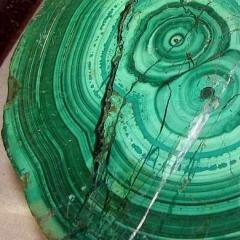We analyze literary works.
Golovna
TV
The story “Chelkash” was written by M. Gorky in the summer of 1894 and published in No. 6 of the magazine “Russian Wealth” for 1895.
The work was based on a story told to the writer from the chamber of medicine in the town of Mykolaiv.
The story opens with a detailed description of the port, in which the author emphasizes the difference between the scale of various works and the coppery and pitiful figures of people who work in slave labor.
Gorky equates the noise of the port with the sounds of the “passionate hymn to Mercury” and shows how this noise and hard labor oppresses people, not only their drying souls, but their draining bodies.
I created an upturned portrait of the main character already in the first part.
An important role in the story is played by the landscape, which Gavrilo creates for additional isolation (“... The gloomy people were unruly and as if they were thinking about the gray, boring thought,” “The sea broke through. they are, zishtovhuyuchi one by one and breaking into a drank”, “Pina, melting, hissing and drinking”).
The deathly voice of the port is resisted by the powerful force of the musical noise of the sea elements.
And in the midst of this element of life, an inevitable human drama flares up.
And the reason for this tragedy is Gavril’s elementary greed.
M. Gorky blatantly informs the reader that the hero planned to earn two hundred rubles in the Kuban. Chelkash gives him forty for the night's price. But this sum seemed so small, and on my knees it is good to give you all the pennies. Chelkash then reveals them, but soon learns that Gavrilo, who just a few years ago was shaking at the hour of the night ride like an aspen leaf, although he wanted to kill him, respectfully worthless, useless to anyone. Chelkash collects pennies from the wrath and mercilessly beats Gavrilo, as much as possible. Then he throws a stone at him, then, obviously having guessed the soul and God, he begins to ask for forgiveness. Injuries Chelkash gives away all the money and, slowly, goes. Gavrilo wants money for his bosom and goes to the other side with wide, firm brim: at the cost of humiliation, and then by force, he takes away that damned freedom, about which he died. The role of landscape in experiences I. A. Bunin “Caucasus” and M. Gorky “Chelkash” The role of landscape in L. N. Tolstoy’s references to “The Afternoon Ball”, I. A. Bunin "Caucasus", M. Gorky "Chelkash". The role of landscape in history The originality of the problems of M. Gorky's early prose from the butt of one of the evidences (“Chelkash”). TV from Gorky's account "Chelkash" The honor of Chelkash and Gavrila (according to M. Gorky’s “Chelkash”) Similarities between the heroes of M. Gorky and V. G. Korolenko Chelkash and Gavrilo in the version of M. Gorky “Chelkash”. Lyudina in the creativity of M. Gorky The concept of people in the work of M. Gorky (review of M. Gorky’s “Chelkash”)Maksim Gorky
"Colkas"
I
Grishka Chelkash appears, “a drunken drunkard and a sweet, smiley villain.”
“And here, in the midst of hundreds of such sharp, trampy posts, they immediately gained respect for their similarity to the steppe hawk, their skinny leanness and the way they take aim , smooth and calm in appearance, but internally awakened and sawy , like the fate of that skinny bird that I guessed.”
Chelkash is looking for Mishka, which is how he steals.
One of the guards tells you that Mishka crushed his leg and he was taken to the doctor.
At night, Chelkash and Gavrilo are on the verge of turning “to work.”
The following is a description of the sea and the sky (psychological landscape: “It was so fatal in this land of Russia that there were soulless masses” - about the gloom).
Chelkash does not tell Gavrilo the correct mark on their way, although Gavrilo, sitting on the oars, will already guess that they did not go out to sea to catch fish.
Gavrilo shouts and asks Chelkash to let him go.
Chelkasha just add the boy’s fear.
On the birch, Gavrilo attacks Chelkash, asking him to give him all the money.
Chelkash gives his signature, “wake of awakening, bitter pity and hatred for this greedy slave.”
Gavrilo looks humiliated, shudders, and wants pennies for his bosom.
Chelkash realizes that he is a villain, a reveler, a thief from all his friends, he will never be so greedy, low, he doesn’t remember himself.
In front of Gavrilo, Chelkash set a simple task - to vigorously paddle and row with oars.
The whole atmosphere brings a real fear to Gregory, who clearly understands that some evildoer will soon become a participant in some war.
He already wants to turn back, but the sensing Gritsko, having sensed his mood, begins to feed him that he works in the village with a pittance.
Grigory relaxes, begins to dream about the comfort of life and in these worlds brings Chelkash to the shore, then takes away the important straight box.
Grigory begins to be afraid again, and new words about pennies instill a little excitement in him, and he almost silently licks it under the nose of the guards at the port.
M. Gorky blatantly informs the reader that the hero planned to earn two hundred rubles in the Kuban. Chelkash gives him forty for the night's price. But this sum seemed so small, and on my knees it is good to give you all the pennies. Chelkash then reveals them, but soon learns that Gavrilo, who just a few years ago was shaking at the hour of the night ride like an aspen leaf, although he wanted to kill him, respectfully worthless, useless to anyone. Chelkash collects pennies from the wrath and mercilessly beats Gavrilo, as much as possible. Then he throws a stone at him, then, obviously having guessed the soul and God, he begins to ask for forgiveness. Injuries Chelkash gives away all the money and, slowly, goes. Gavrilo wants money for his bosom and goes to the other side with wide, firm brim: at the cost of humiliation, and then by force, he takes away that damned freedom, about which he died. The role of landscape in experiences I. A. Bunin “Caucasus” and M. Gorky “Chelkash” The role of landscape in L. N. Tolstoy’s references to “The Afternoon Ball”, I. A. Bunin "Caucasus", M. Gorky "Chelkash". The role of landscape in historyThe villains delivered the vantage to the Greek ship, where they spent the night.
From an artistic point of view, it is clearly traditional.
And all compositional elements: exposition - sea, harbor, port;
this is the ground on which the action takes place;<...>three parts, in the middle there is a tie - zustrich Chelkasha and Gavrila;
development of the action - preparation for the nightly villainous raid and half a pittance;
The story intersperses the story about Chelkash’s hard-earned life, and there is no basis in his story for Gregory’s exit to another life.
We cannot serve as a justification for going “to the bottom” for those who have become “robot-bound” fathers and old mothers who have settled down to the ground.
It’s not about the truth of Chelkash’s veda mov Gorky’s revelation, but about the actions of the hero’s character.
The axis-axis may be impossible for anyone to establish a spiritual connection with Grigory Chelkash - to establish a singing spiritual connection with Gavrilo.
It seems that Gavrila’s road is clear - to the village, to the hut, to the sons-in-law.
Why should you get excited about the idea of easy pennies?
And such a turn for the character is completely incredible.
A lot of Gorky’s heroes fell asleep below, “to the bottom.”
Ale kozhen come here in your own way.
The boy spoke to Chelkash and immediately became worthy of him.
The lad chuckled at what Chelkash was doing.
That's because it's fishing.
The lad started talking about freedom, and Chelkash rejoiced, what about freedom for the lads?
Chelkash took the oars and Gavril’s bag with his passport, so that he wouldn’t come in, ordering the little one to check in the chovny, and he himself knew Rapto.
Gavrilo burned with even greater passion for Chelkash.
Chelkash appeared at once, giving the lads a cube and importance, and he himself took a cut from the chaven.
Chelkash threw himself first and pishov.
Turning around just two years later, the worn skin of my pants and jacket felt sore.
When Gavrilo woke up, he immediately got angry, not recognizing Chelkash, who had changed his mind.
The boy looked around Chelkash, calling him lord, and he, laughing at Gavril’s mortal fears, asked that he was not ready to try a share for two hundred rubles once again.
Chelkash asked, and Gavrilo took the pennies, and then said that he didn’t take it.
Chelkash took out a pack of porridge, put one hundred in the porridge, and gave the pennies to Gavrili.
Convinced, Gavrilo said that it would take Chelkash to knock him out.
Chelkash calm down yogo: Take it!
Take it!
No wonder I did it!
[…] Let’s not get into trouble without killing a human!
For people like me, no one can be held down.”
on the right is crushed, Gavrilo immediately forgets about everything, having earned money, and greed fades from his eyes.
(“Gavrilo opened his lined papers, and everything appeared bright and rainbow-colored in his eyes.”)


